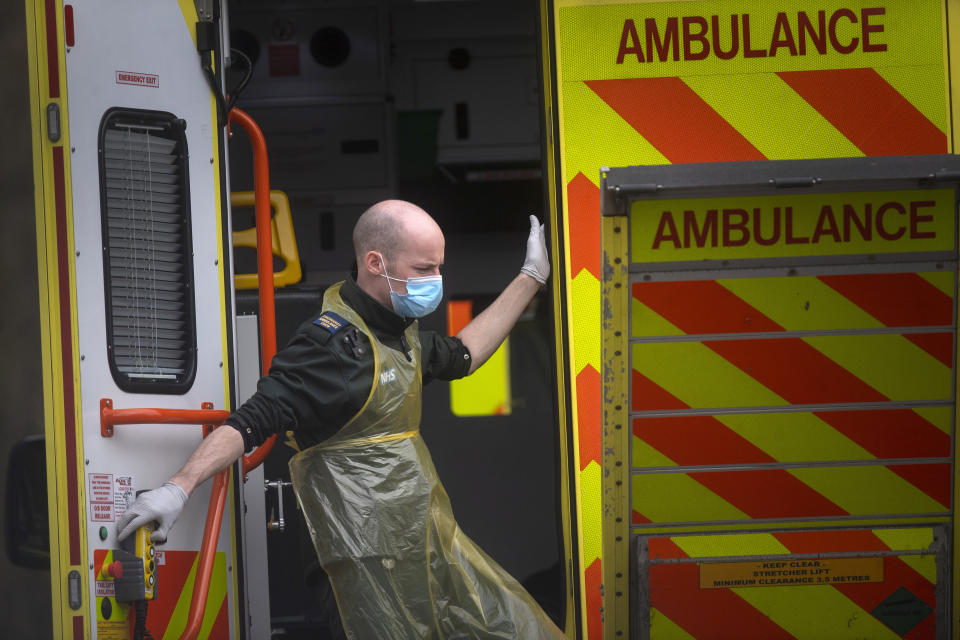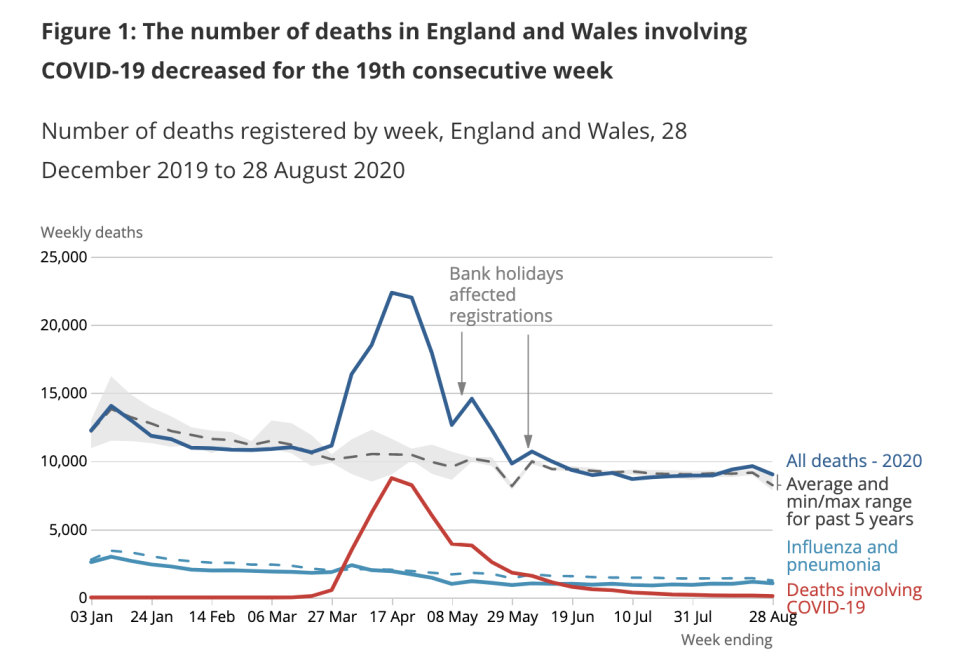COVID-19 deaths in England and Wales at their lowest for six months, new data shows

Late August saw the lowest amount of deaths involving COVID-19 registered for half a year, new figures show.
Data from the Office for National Statistics (ONS) reveals that 101 deaths mentioning COVID-19 were registered in the week ending 28 August, the lowest number for 24 weeks.
It was also a 26.8% decrease from the week before, and meant coronavirus accounted for 1.1% of all deaths in England and Wales. It is also the 19th consecutive week that COVID-19 deaths fell.
“The number of deaths involving COVID-19 decreased across the majority of the English regions, however all regions had higher overall deaths than the five-year average,” the ONS said.

More focus has been applied to the UK’s coronavirus deaths, which plummeted following lockdown but have remained low despite an uptick in infections in recent weeks.
The last few days have seen a huge rise in cases, too, with 2,988 recorded on Sunday and 2,948 on Monday.
Read more: 4 charts that explain the current coronavirus situation in the UK
Health secretary Matt Hancock said the increase amount of infections was happening mostly in younger people, who are known to be less susceptible to the virus.
However, he warned on LBC: “The rise in the number of cases we have seen over the last few days is largely among younger people – under-25s, especially between 17 and 21 – and the message to all your younger listeners is that even though you are at lower risk of dying from COVID if you’re under 25, you can still have really serious symptoms and consequences.
“Long COVID – where people six months on are still ill – is prevalent among younger people.
“Also, that you can infect other people – this argument that we have seen that some people come out with saying ‘you don’t need to worry about a rise in cases because it is younger people and they don’t die’ – firstly they can get very, very ill.”
He since told BBC Radio 1: “Don’t kill your gran by catching coronavirus and then passing it on.”
“We’ve been able to relax a bit over the summer, the disease levels have been really quite low in the UK through the summer but these latest figures really show us that much as people might like to say ‘oh well it’s gone away’ – this hasn’t gone away,” he said.
“And if we’re not careful, if we don’t take this incredibly seriously from this point in we’re going to have a bumpy ride over the next few months.”
Coronavirus: what happened today
Click here to sign up to the latest news and information with our daily Catch-up newsletter

 Yahoo Sports
Yahoo Sports 
